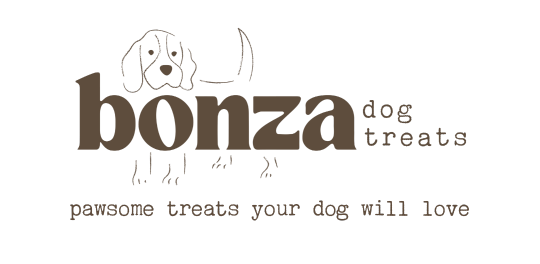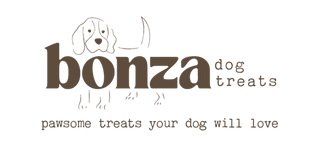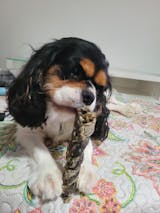When you bring your puppy home at 8 weeks old, he is the most adorable little fluff ball. But just like bringing home a baby, it can also be slightly overwhelming.
How will you house train him? Will he ever sleep through the night? Why does he want to eat thongs?
So many questions!!
There are a couple of important things to keep in mind with your new puppy.
Firstly, puppy doesn't just 'know' how to do things. Just like 2 legged terrorists, puppies need to be gently shown how to become model citizens.
Try to schedule very small (1 - 2 minutes) training sessions through the day to teach your puppy how to sit, stay, come when called etc.
You may also want to try to train a few tricks. Take a look at our free PDF trick training download of 6 easy to train tricks.
Any training will require lots of treats. You don't work without payment, and it isn't logical to expect your dog to do so either. If your dog does something when asked, reward the behaviour. We have the best training treats which are teeny tiny - you can be generous without worrying about overfeeding.
This is an xray of a 2 week old puppy.

Appropriate Puppy Exercise from 0 - 6 months
- Slow, short walks with lots of opportunities to sniff - distance is not the objective (max 30 minutes in total at 6 months of age)
- Formal skills training – sit, stay, down, touch – no more than 2 mins per session
- Free play – no more than 10 mins per day at 6 months; discourage rough play, such as body slamming
- Chasing objects – roll (not throw) balls and drag toys along the ground. ALWAYS avoid repetitive ball throwing & chasing, regardless of the age of the dog
- Tugging – do not pull against the dog – hold the toy and let the puppy pull against you; keep the toy low, to maintain the puppy’s neck in a straight line with its back
- Avoid – direct running, jumping, indoor/outdoor stairs, fast turns, sudden stops like chasing a ball!
- Young puppies, up to six months, should not be exercised with the intent to increase strength or endurance. These puppies should be allowed to play naturally, i.e. self-directed play
- Jumping is often encouraged, with little understanding of the damage it can cause a young pup. Do not allow your puppy up on high objects without good supervision and assist them when getting down - do not encourage jumping
Now you might be worrying about how you are going to tire your puppy out, if he isn't allowed to do very much exercise. Well, you will be pleased to know that mental stimulation tires puppy out just as much as physical activity. Another great reason to give short structured training sessions!












Leave a comment